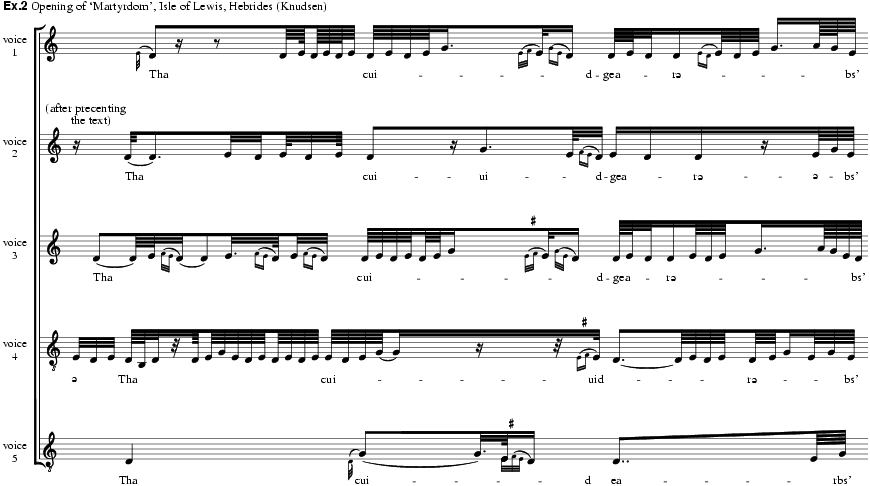
(from Gk. heteros: ‘other’, ‘different’ and phōnē: ‘voice’).
Term coined by Plato, of uncertain meaning; now used to describe simultaneous variation of a single melody. Plato used the word (Laws, vii, p.812) when discussing the unsuitability of music for lyre and voice in musical education. It is not clear if he meant that the ‘other voice’ (the lyre) provided a contrasting melody, a harmonization of the vocal part or deliberate variations on it. Thus its meaning could range from reference to minute discrepancies in singing or playing in unison or octaves (even, for instance, those produced unintentionally within the first violins of an orchestra) to the most complex of contrapuntal writing. In modern times the term is frequently used, particularly in ethnomusicology, to describe simultaneous variation, accidental or deliberate, of what is identified as the same melody. Ex.1, from Beethoven’s Missa solemnis, illustrates the practice of distributing the same melody among different voice or instrument parts with different rhythmic densities. While this is a common enough occurrence between the cello and double bass parts in European orchestral writing, it is basic to some non-European music, for example the gamelan music of south-east Asia (see Indonesia).
The term ‘heterophony’ is also used in discussion of much accompanied vocal music of the Middle East and East Asia, where the instrument provides an embellished version of the vocal part. One instance is the relationship between lyra and voice in the performance of Kleftic ballads (see Greece, §IV, 1(iv)). Heterophony is also likely to occur frequently in group singing within orally transmitted monophonic traditions, as in ex.2, where the highly individual and ornamental treatment given to a straightforward metrical psalm tune is explained as the work of ‘individual people, who in the singing fellowship reserve the freedom to bear witness to their relation to God on a personal basis’ (Knudsen).

MGG2 (R. Schumacher)
G. Adler: ‘Über Heterophonie’, JbMP 1908, 17–27
T. Knudsen: ‘Ornamental Hymn/Psalm Singing in Denmark, the Faroe Islands and the Hebrides’, DFS Information (1968), no.2, 10
W.P. Malm: ‘On the Meaning and Invention of the Term “Disphony”’, EthM, xvi (1972), 247–9
PETER COOKE